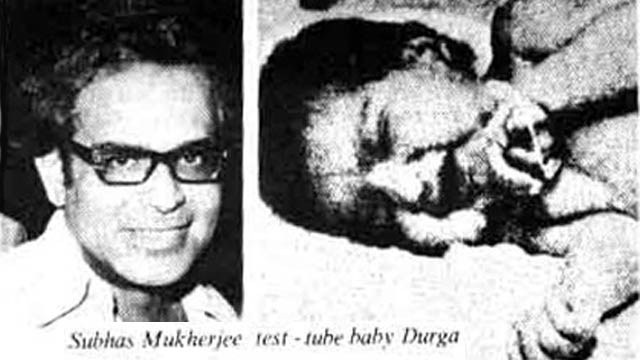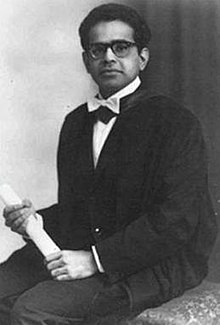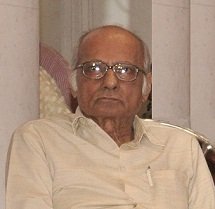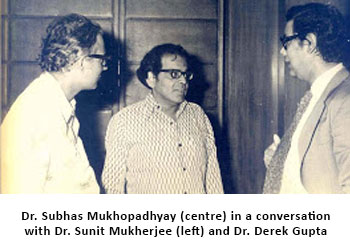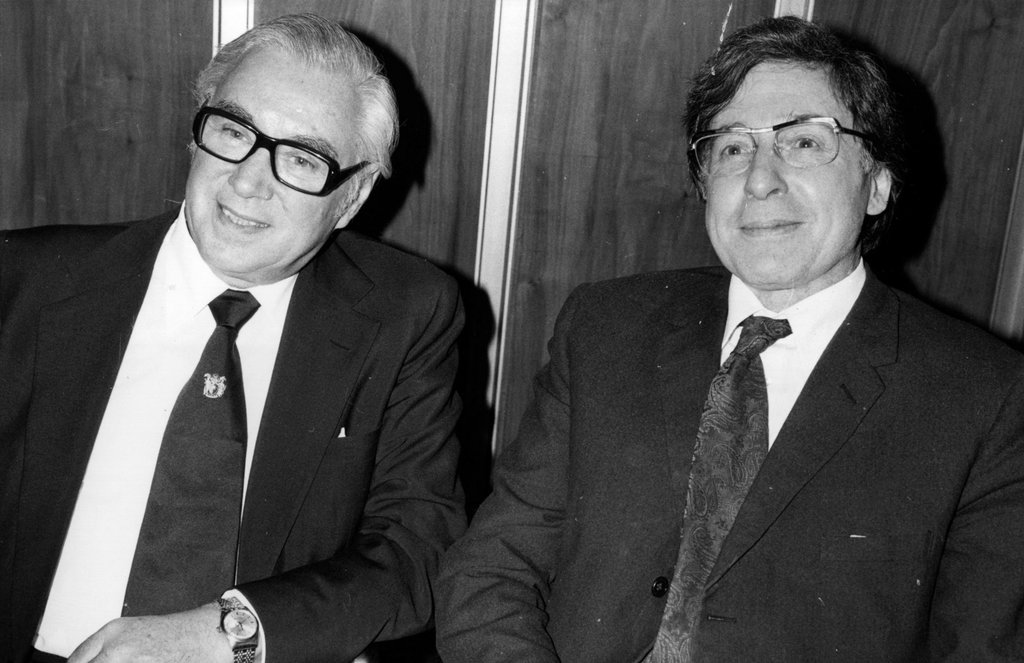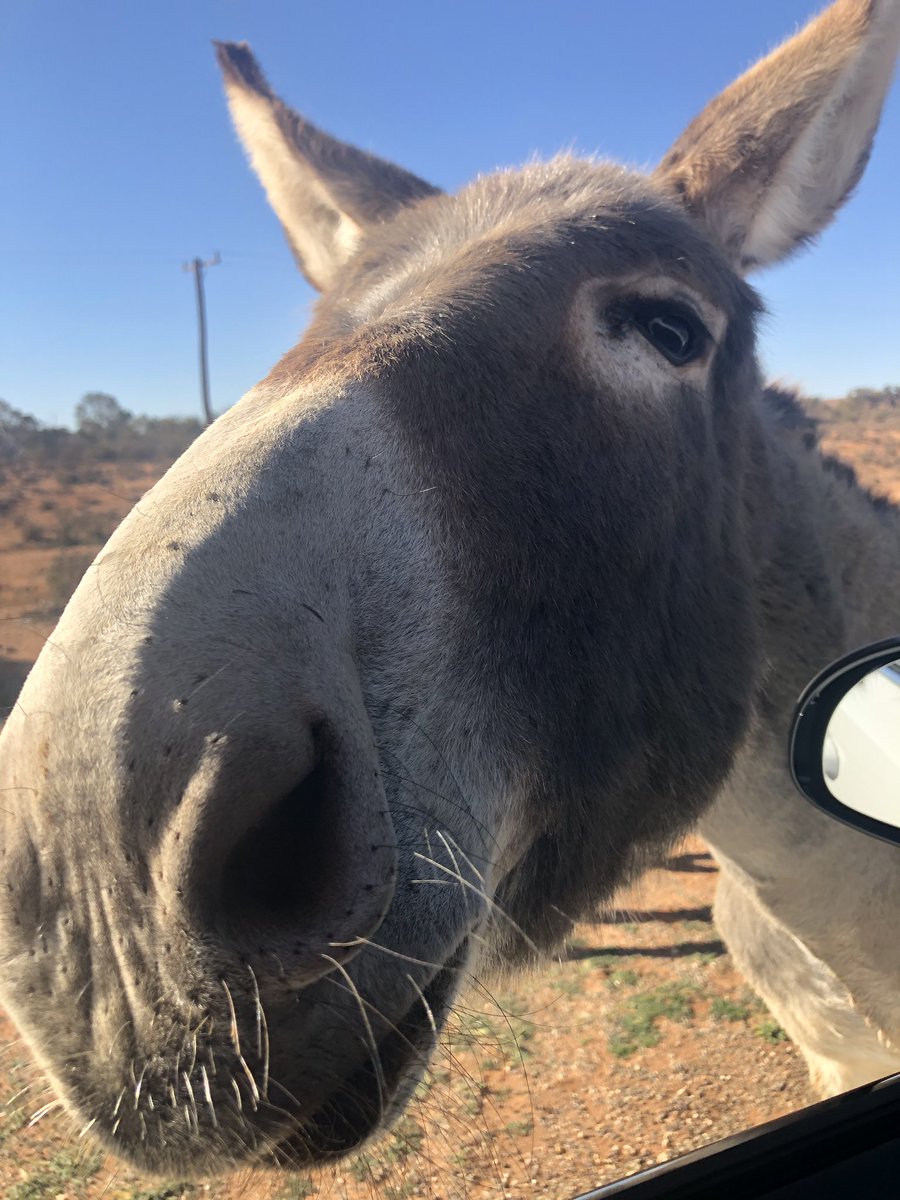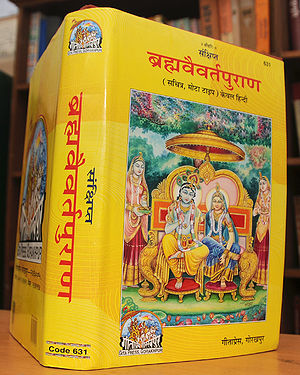Even the BJP gave up Hindutva for civic nationalism, Gandhian socialism, and positive secularism in 1980s.
Hindutva does not belong to Modi nor his party, it belongs to the people as a unifying, decolonial ideology similar to pan-Africanism or Yugoslavism.
His own brand of "positive secularism" is even milder - deepening special rights and welfare schemes for religious minorities.
I'm not entirely comfortable with Modi's "Hindutva".
— Onye Nkuzi (@cchukudebelu) February 2, 2021
I know many of my Indian followers will come at me, angrily - but let me just say this out.
I'm not sure it is a great model for democracy in a diverse, multi-cultural developing nation.
Even the BJP gave up Hindutva for civic nationalism, Gandhian socialism, and positive secularism in 1980s.
The most radical policy they can dream of is religion-neutral laws and equal rights for equal citizens.
When British India was partitioned into a Muslim homeland and a Dharmic homeland, one state became a 'Ghazi' garrison state, and one the successor state to the Indic civilisation.
https://t.co/Jiy4gfJ6sD
That backfired when voters believed this and voted for Modi, thinking he was going to be the "Hindu nationalist" he was portrayed as.
https://t.co/yLPQf0AXSR
The centre-left party in power prefers to draft religion-neutral laws and hope for the best.
Inspired by Italian unification, similar to pan-Africanism, and compatible with a range of political ideologies once such sovereignty is established.
Some use it as a bogeyman to discredit indigenous knowledge systems.
Others use it for their election-winning machine, where right-wing voters go in, and left-wing policy comes out, and a bit of steam is released.
More from India
Now this is provoking me to write!
The schism of BJP- RSS ideology.
Full blown Schizophrenia if one wants to psychoanalyze BJP.
#doublebind where a parent keeps giving double messages to their confused children. They adore the parent for one thing and hate them for another.
How can BJP sustain itself with this kind of internal schism? In other words no samanjas or clarity of what they stand for?
Its exploding now. The madness.
People airing out Gandhi's sexuality out of context and irrelevant to him being killed by Godse.Supporting Godse's action
But not understanding that the same reasons why Godse was killed are the reasons why BJP leaders today hail Gandhi as Bapu or Mahatma. On #MartyrsDay
Very dangerous mind or #headgames being played out here. Our country is a large scale mental asylum with broken psyche.
Sanatana Dharma does not need more Nathuram Godses. We need more Shri Vidyaranyas and Adi Shankaras who would build Hindu Rajya through Raja and kshatriya Dharma.
Nathuram Godse as a Brahmana weakened his brahmanatwam by adopting a Nationalist ideology.
Instead he could have used his pourusham to garber a Sanatani movement to fight against INC and Gandhian ideology.
He dissented from RSS and started his own Hindu Rashtra Dal and also was a member of Hindu Mahasabha. However he did not fall back on our darshana s to understand
The schism of BJP- RSS ideology.
Full blown Schizophrenia if one wants to psychoanalyze BJP.
#doublebind where a parent keeps giving double messages to their confused children. They adore the parent for one thing and hate them for another.
BJP-RSS ideology
— Dr. Latha (@DrlathaC) January 30, 2021
Lower rank workers worship #NathuramGodse, but leaders worship Mahatma Gandhi.
True meaning of #SabkaSaath \U0001f606
How can BJP sustain itself with this kind of internal schism? In other words no samanjas or clarity of what they stand for?
Its exploding now. The madness.
People airing out Gandhi's sexuality out of context and irrelevant to him being killed by Godse.Supporting Godse's action
But not understanding that the same reasons why Godse was killed are the reasons why BJP leaders today hail Gandhi as Bapu or Mahatma. On #MartyrsDay
Very dangerous mind or #headgames being played out here. Our country is a large scale mental asylum with broken psyche.
Sanatana Dharma does not need more Nathuram Godses. We need more Shri Vidyaranyas and Adi Shankaras who would build Hindu Rajya through Raja and kshatriya Dharma.
Nathuram Godse as a Brahmana weakened his brahmanatwam by adopting a Nationalist ideology.
Instead he could have used his pourusham to garber a Sanatani movement to fight against INC and Gandhian ideology.
He dissented from RSS and started his own Hindu Rashtra Dal and also was a member of Hindu Mahasabha. However he did not fall back on our darshana s to understand
In his letters describing the India Mission, Carey has given us an insight into how the society functioned then, of how the minds of the people worked and what methods the missionaries used to approach and brainwash the common people.
It is entirely possible that,Carey in his arrogance of being the white man and hence more civilized,his inability to under the Hindu scriptures and his natural disdain for the learned community coupled with his inherent hatred for the idolaters may have exaggerated the incidents.
In fact, considering the venom with which he has spoken about Hinduism and it's practices, it's likely that he has exaggerated these incidents. But it cannot be denied that these incidents did happen even if they may not have been on scale at which Carey has described.
One of his journal entry mentions a debate which happened in a temple in front of around 200 people. Carey describes having debated with two learned men and goes on to say when both learned men failed to answer his questions, he went on to preach the gospel to the assembled crowd
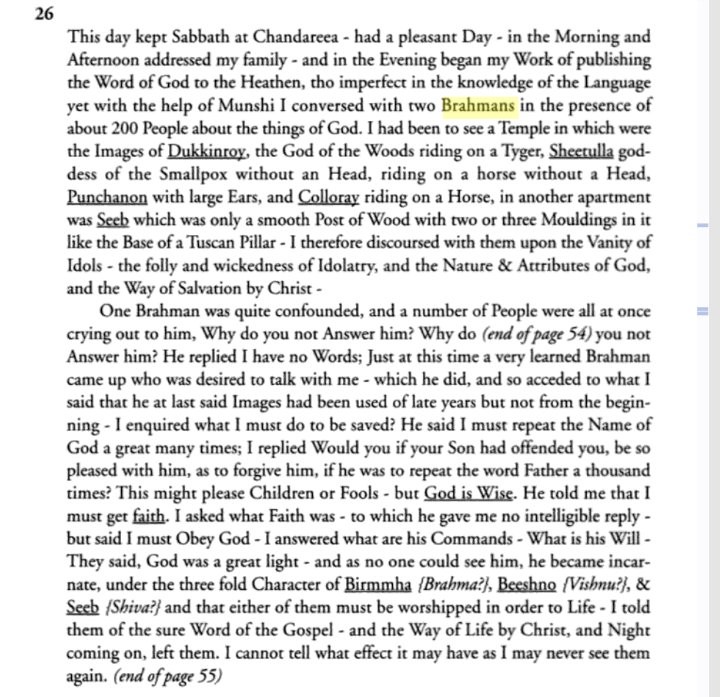
In a letter dated 30th June,1795 he goes on to gleefully narate how Hindus were unaware of their own scriptures and how an supposed expert named a grammar book when he was questioned as which scripture said that the Murti is God.
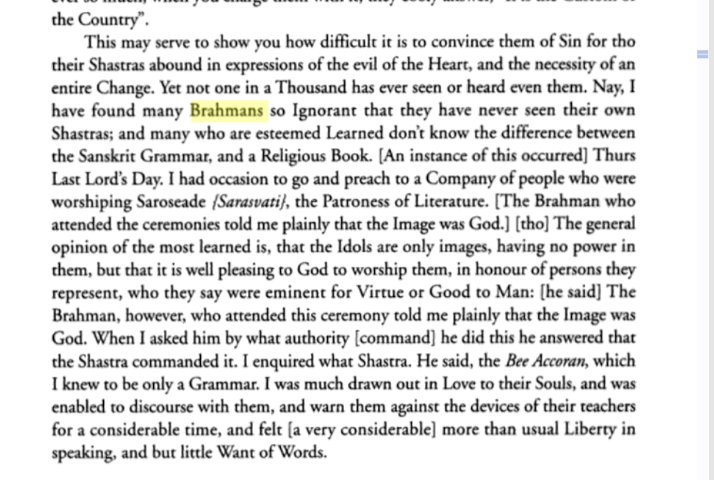
William Carey landed on the Indian soil in the year 1793. He spent the remaining years of his life in India. He was a British missionary, a translator and a social reformer who is best known for having the practice of Sati abolished in India. https://t.co/kRiPwgjwcP pic.twitter.com/JqO3A7cCsX
— Tanvangi (@Tanvangi17) December 18, 2020
It is entirely possible that,Carey in his arrogance of being the white man and hence more civilized,his inability to under the Hindu scriptures and his natural disdain for the learned community coupled with his inherent hatred for the idolaters may have exaggerated the incidents.
In fact, considering the venom with which he has spoken about Hinduism and it's practices, it's likely that he has exaggerated these incidents. But it cannot be denied that these incidents did happen even if they may not have been on scale at which Carey has described.
One of his journal entry mentions a debate which happened in a temple in front of around 200 people. Carey describes having debated with two learned men and goes on to say when both learned men failed to answer his questions, he went on to preach the gospel to the assembled crowd

In a letter dated 30th June,1795 he goes on to gleefully narate how Hindus were unaware of their own scriptures and how an supposed expert named a grammar book when he was questioned as which scripture said that the Murti is God.

You May Also Like
👨💻 Last resume I sent to a startup one year ago, sharing with you to get ideas:
- Forget what you don't have, make your strength bold
- Pick one work experience and explain what you did in detail w/ bullet points
- Write it towards the role you apply
- Give social proof
/thread
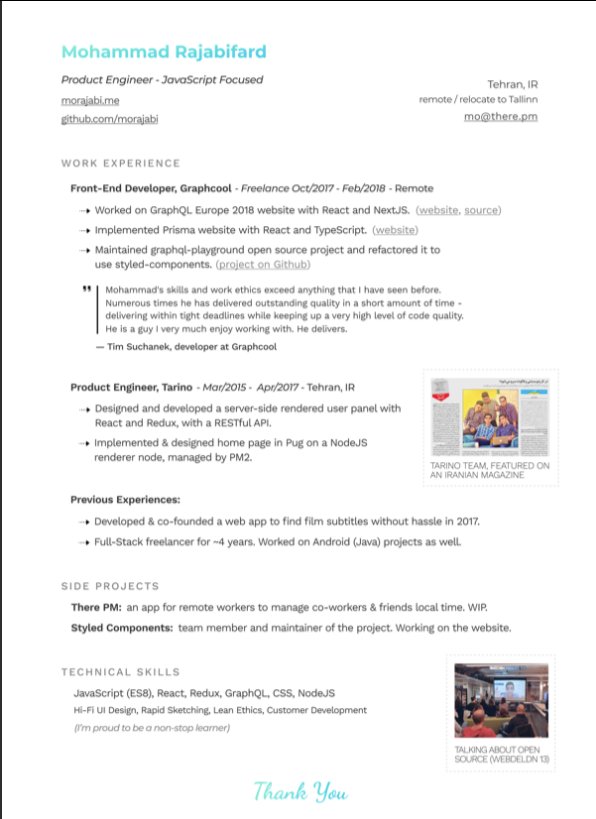
"But I got no work experience..."
Make a open source lib, make a small side project for yourself, do freelance work, ask friends to work with them, no friends? Find friends on Github, and Twitter.
Bonus points:
- Show you care about the company: I used the company's brand font and gradient for in the resume for my name and "Thank You" note.
- Don't list 15 things and libraries you worked with, pick the most related ones to the role you're applying.
-🙅♂️"copy cover letter"
"I got no firends, no work"
One practical way is to reach out to conferences and offer to make their website for free. But make sure to do it good. You'll get:
- a project for portfolio
- new friends
- work experience
- learnt new stuff
- new thing for Twitter bio
If you don't even have the skills yet, why not try your chance for @LambdaSchool? No? @freeCodeCamp. Still not? Pick something from here and learn https://t.co/7NPS1zbLTi
You'll feel very overwhelmed, no escape, just acknowledge it and keep pushing.
- Forget what you don't have, make your strength bold
- Pick one work experience and explain what you did in detail w/ bullet points
- Write it towards the role you apply
- Give social proof
/thread

"But I got no work experience..."
Make a open source lib, make a small side project for yourself, do freelance work, ask friends to work with them, no friends? Find friends on Github, and Twitter.
Bonus points:
- Show you care about the company: I used the company's brand font and gradient for in the resume for my name and "Thank You" note.
- Don't list 15 things and libraries you worked with, pick the most related ones to the role you're applying.
-🙅♂️"copy cover letter"
"I got no firends, no work"
One practical way is to reach out to conferences and offer to make their website for free. But make sure to do it good. You'll get:
- a project for portfolio
- new friends
- work experience
- learnt new stuff
- new thing for Twitter bio
If you don't even have the skills yet, why not try your chance for @LambdaSchool? No? @freeCodeCamp. Still not? Pick something from here and learn https://t.co/7NPS1zbLTi
You'll feel very overwhelmed, no escape, just acknowledge it and keep pushing.





